Owen Singh
Efficient Human Pose Estimation: Leveraging Advanced Techniques with MediaPipe
Jun 21, 2024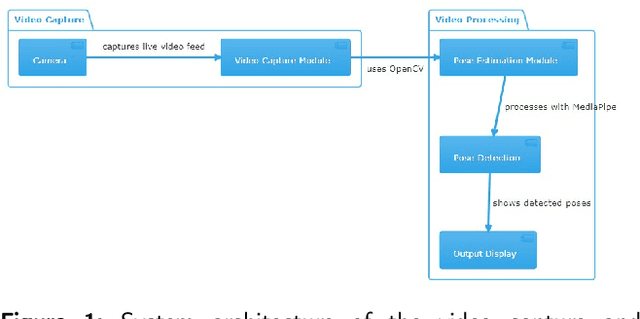
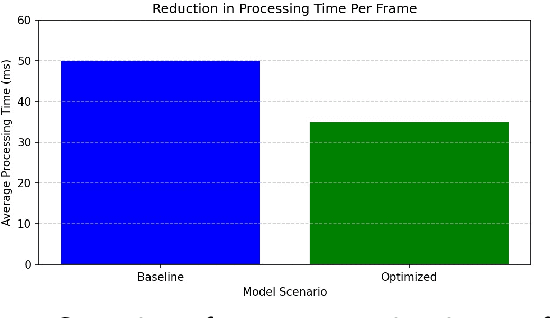
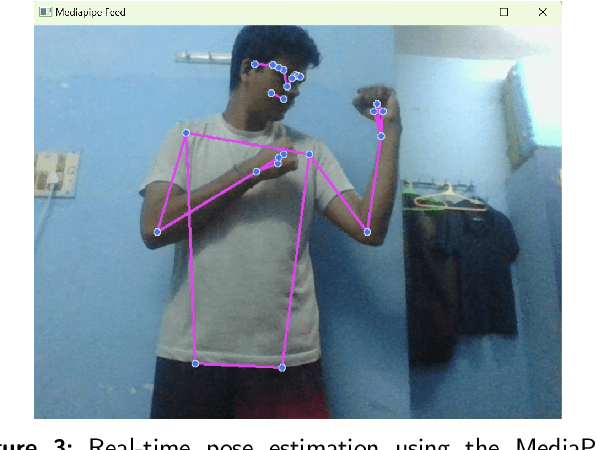
Abstract:This study presents significant enhancements in human pose estimation using the MediaPipe framework. The research focuses on improving accuracy, computational efficiency, and real-time processing capabilities by comprehensively optimising the underlying algorithms. Novel modifications are introduced that substantially enhance pose estimation accuracy across challenging scenarios, such as dynamic movements and partial occlusions. The improved framework is benchmarked against traditional models, demonstrating considerable precision and computational speed gains. The advancements have wide-ranging applications in augmented reality, sports analytics, and healthcare, enabling more immersive experiences, refined performance analysis, and advanced patient monitoring. The study also explores the integration of these enhancements within mobile and embedded systems, addressing the need for computational efficiency and broader accessibility. The implications of this research set a new benchmark for real-time human pose estimation technologies and pave the way for future innovations in the field. The implementation code for the paper is available at https://github.com/avhixd/Human_pose_estimation.
VigilEye -- Artificial Intelligence-based Real-time Driver Drowsiness Detection
Jun 21, 2024Abstract:This study presents a novel driver drowsiness detection system that combines deep learning techniques with the OpenCV framework. The system utilises facial landmarks extracted from the driver's face as input to Convolutional Neural Networks trained to recognise drowsiness patterns. The integration of OpenCV enables real-time video processing, making the system suitable for practical implementation. Extensive experiments on a diverse dataset demonstrate high accuracy, sensitivity, and specificity in detecting drowsiness. The proposed system has the potential to enhance road safety by providing timely alerts to prevent accidents caused by driver fatigue. This research contributes to advancing real-time driver monitoring systems and has implications for automotive safety and intelligent transportation systems. The successful application of deep learning techniques in this context opens up new avenues for future research in driver monitoring and vehicle safety. The implementation code for the paper is available at https://github.com/LUFFY7001/Driver-s-Drowsiness-Detection.
BetterNet: An Efficient CNN Architecture with Residual Learning and Attention for Precision Polyp Segmentation
May 05, 2024
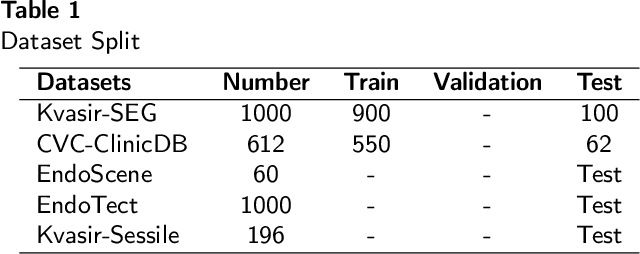

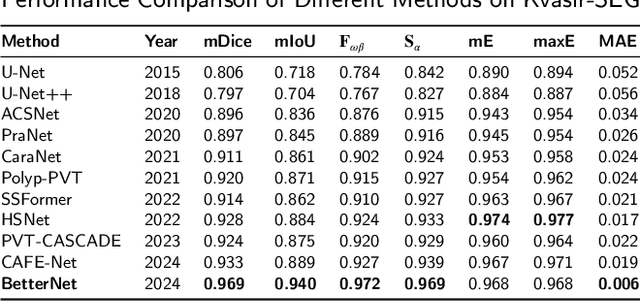
Abstract:Colorectal cancer contributes significantly to cancer-related mortality. Timely identification and elimination of polyps through colonoscopy screening is crucial in order to decrease mortality rates. Accurately detecting polyps in colonoscopy images is difficult because of the differences in characteristics such as size, shape, texture, and similarity to surrounding tissues. Current deep-learning methods often face difficulties in capturing long-range connections necessary for segmentation. This research presents BetterNet, a convolutional neural network (CNN) architecture that combines residual learning and attention methods to enhance the accuracy of polyp segmentation. The primary characteristics encompass (1) a residual decoder architecture that facilitates efficient gradient propagation and integration of multiscale features. (2) channel and spatial attention blocks within the decoder block to concentrate the learning process on the relevant areas of polyp regions. (3) Achieving state-of-the-art performance on polyp segmentation benchmarks while still ensuring computational efficiency. (4) Thorough ablation tests have been conducted to confirm the influence of architectural components. (5) The model code has been made available as open-source for further contribution. Extensive evaluations conducted on datasets such as Kvasir-SEG, CVC ClinicDB, Endoscene, EndoTect, and Kvasir-Sessile demonstrate that BetterNets outperforms current SOTA models in terms of segmentation accuracy by significant margins. The lightweight design enables real-time inference for various applications. BetterNet shows promise in integrating computer-assisted diagnosis techniques to enhance the detection of polyps and the early recognition of cancer. Link to the code: https://github.com/itsOwen/BetterNet
 Add to Chrome
Add to Chrome Add to Firefox
Add to Firefox Add to Edge
Add to Edge